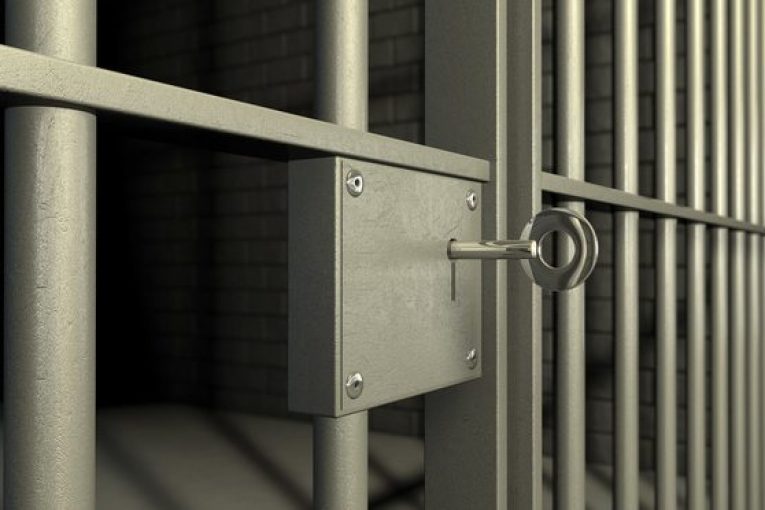

By Murcel Rahimi
NEW YORK- The findings of the new epidemiological model indicate that COVID-19 could claim the lives of approximately 100,000 more people than current projections stipulate if jail populations are not dramatically and immediately reduced.
The ACLU model used data pulled from more than 1,200 midsize and large jail systems around the country, whose surrounding communities account for 90 percent of the U.S. population. It found that, unequivocally, keeping people out of jail saves lives, both inside the jail and in the surrounding community.
“The prevailing epidemiological models largely fail to take into account our incarceration rates and the complete absence of social distancing in our jails which is why we had to build our own model,” said Lucia Tian, chief analytics officer, ACLU. “While we always knew that jails would have an impact on loss of life in this pandemic, the model shows us just how large that impact may be — that even under our best-case scenarios, we could be looking at 100,000 more deaths. We can’t save our community while ignoring our jails.”
The findings also indicate that even if communities across the United States continue practicing social distancing and following public health guidance, we will still experience much higher death rates if no substantial action is taken to reduce jail populations.
“We are likely facing massive loss of life, both in jails and in communities around the country, if dramatic steps aren’t taken to reduce the incarcerated population in this country,” said Udi Ofer, director of the ACLU’s Justice Division.
“Mass incarceration was a major public health crisis before the outbreak of COVID-19, but this pandemic has pushed it past the breaking point,” Ofer said. “The revolving doors of jails make them a tinderbox for COVID-19 spread within our communities. This data is a wakeup call as to the true cost of 50 years of mass incarceration and its impact on communities across the nation, disproportionately communities of color.”
tinderbox for COVID-19 spread within our communities. This data is a wakeup call as to the true cost of 50 years of mass incarceration and its impact on communities across the nation, disproportionately communities of color.”
The United States has the highest incarceration rate in the world with only 4 percent of the world’s population but 21 percent of the world’s incarcerated population. There are almost 740,000 people in jail in the U.S. on any given day, a person is admitted every three seconds. About 40 percent of all incarcerated people suffer from at least one chronic health condition, such as asthma or diabetes.
Given the overcrowding and substandard conditions in most U.S. jails and prisons, standard public health interventions to “flatten the curve” and prevent the spread of COVID-19 are simply not feasible. Most are unable to allow for six feet of social distancing among incarcerated people and staff, and lack the facilities that allow for the recommended hand washing and cleaning of surfaces. Moreover, the health care available in our nation’s jails is chronically substandard, further fueling the growth of the pandemic and increasing mortality rates among those infected while in jail.
The ACLU lists a series of recommendations and addresses major stakeholders who can undertake these actions in order to mitigate the spread of COVID-19:
- Governors must provide statewide leadership and coordination, directing the many local law enforcement agencies in their state to work together in a unified fashion to reduce jail populations by following all the policy recommendations below.
- Chief justices or state administrative judges should likewise exercise statewide leadership by issuing orders, bringing a uniform approach to the hundreds of judges in their state by directing them to reduce local jail populations by voiding or suspending, on a statewide basis, outstanding arrest warrants for failure to appear, failure to pay, and technical parole or probation violations; and ordering pretrial release without conditions in all cases where release poses no risk of imminent and willful flight or imminent serious physical harm to another person.
- Prosecutors, as the gatekeepers of the local criminal justice system, should decline to prosecute custodial arrests made for low-level charges, recommend pretrial release without conditions in all cases where there is no risk of imminent serious physical harm to another person, and proactively identify and release anyone currently incarcerated who fits this criterion.
- Sheriffs, in their capacities as jail administrators, should release anyone in their custody who is uniquely vulnerable to serious illness or death based on age or underlying medical conditions, as defined by the CDC; they also should consider releasing other people in custody where the release poses no risk of serious physical harm to another person, including people held by the sheriff on immigration detainers.
- Chiefs of police and sheriffs, in their capacity as law enforcement officers, should not make any custodial arrests unless necessary to prevent an imminent and serious risk of bodily harm to another person, and instead issue summons for serious offenses and give verbal warnings or written citations for all other low-level offenses.
- Judges should order pretrial release without conditions in all cases where there is no risk of imminent serious physical harm to another person, order release of anyone currently incarcerated not meeting those conditions, and suspend issuance or enforcement of any bench warrants for failure to appear or technical parole or probation violations.
The statement claims taking these actions will directly result in lives saved in jails and in their surrounding communities. Every day that goes by without action means more people will die. Delaying action for a week could mean a difference of 5,000-18,000 lives.
To sign up for our new newsletter – Everyday Injustice – https://tinyurl.com/yyultcf9
